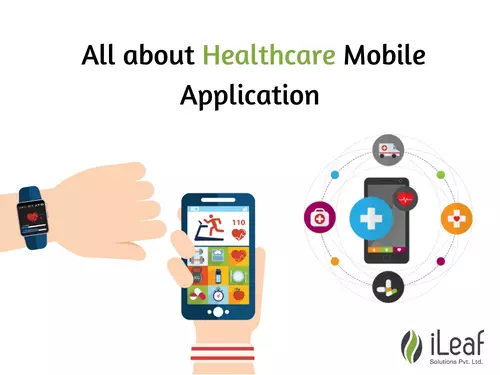The Advantages of Healthcare Applications: A Comprehensive Guide

Introduction:
In life, we continually encounter challenges that test our resilience and push us to grow. These experiences shape us as individuals and contribute to the progress of our species. Occasionally, we face significant changes that force us to abandon our previous norms and explore new avenues. The human spirit's tenacity and our drive to survive and find hope have remained constant throughout history, fueling our innovative spirit and leading to progress. One such transformative phenomenon that reshaped the world was the emergence of the COVID-19 pandemic in 2020. This global health crisis compelled healthcare institutions to rethink their strategies and embrace digital solutions, particularly mobile health applications (mHealth apps). In this article, we, at iLeaf Solutions, a leading mobile application development company, aim to provide valuable insights and tips for developing a successful mHealth app for medical practices or institutions.
Understanding the Need for a Mobile Health Application:
In the era of technology, smartphones have become an integral part of our lives, enabling us to stay connected and informed. To combat the challenges posed by the pandemic, a well-designed mHealth app should not only function effectively but also provide an aesthetically pleasing user experience. Its sustainability over time is also crucial. An ideal mHealth app should allow healthcare providers to connect with patients and staff effortlessly, providing access to information anytime and anywhere. To achieve this, it is essential to have a comprehensive understanding of mobile health applications and their design considerations. Don't assume you know what is important to your patients; be open to consumer feedback and continuously improve the app's design to better resonate with your clientele.
Identifying Real-World Problems and Adding Value:
To create a successful mHealth app, it is crucial to identify a real-world problem, assess it thoroughly, and determine why a virtual platform like an mHealth app is the appropriate solution. By addressing specific needs and improving upon existing healthcare functions, your app can add significant value to the user experience. While it's important to have a grand vision for the final product, we recommend starting small and understanding the market landscape before adding more features. This approach is cost-effective, builds consumer loyalty, and establishes a strong foundation for app development.
The Role of Mobility and App Engagement:
In today's competitive market, an app's mobility and ability to enhance digital interactions on the go are essential factors for success. This is particularly relevant during the ongoing pandemic. Promoting app engagement can be achieved through gamification, incorporating games and gaming technology that attract users and make the app more interactive. Additionally, integrating social media elements and educational content can further enhance engagement and serve as a source of information and entertainment.
Designing for Simplicity, Scalability, and Sustainability:
When designing your app, prioritize simplicity, scalability, and sustainability for the long term. Utilize existing frameworks that can be modified to suit your needs, and personalize the experience to reflect your brand. Your app should accommodate future updates and new features easily through a dynamic interface. Regular upgrades are necessary to keep the app up to date, maintain a positive reputation, and prevent user abandonment. Seamless integration with other apps or portals is crucial to ensure a smooth workflow and daily routine for users. Continuous testing, app analytics, and data collection contribute to creating a better user experience and improving app penetration in the market.
Privacy, Security, and Distribution:
Before launching your app, it is essential to involve privacy and security experts to ensure the protection of personal information. Transparency regarding privacy policies is crucial to gain user trust. Consider the distribution channels for your app, ensuring easy accessibility and downloading to encourage widespread adoption among healthcare providers and patients alike.
Conclusion:
In conclusion, developing a successful mHealth app requires strategic planning and consideration of various factors. Sustainable budget strategies, prioritizing the consumer experience, app engagement, usability, cost, clinical impact, integration, functionality, and credibility are all vital for app success. By embracing technology and leveraging the advantages of healthcare applications, healthcare providers can adapt to the changing landscape, enhance patient care, and redefine the way they deliver healthcare services.














